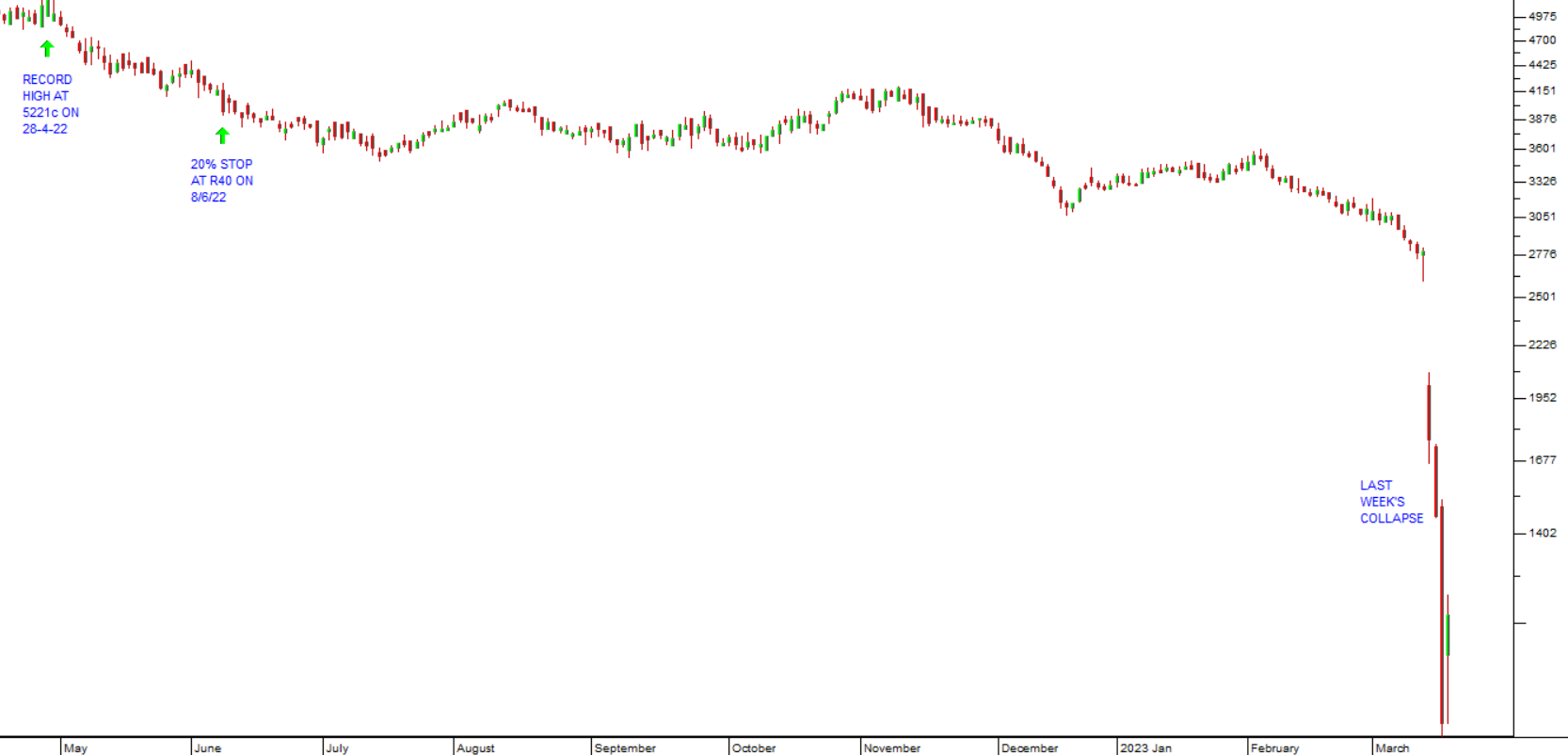Stopping out of Transaction Capital
Transaction Capital (TCP) has been one of our favourite shares for a long time. In March 2014 you could have bought this share for under R5. Over the next 8 years it went up steadily reaching a high of R52.21 on 28th April 2022 – a gain of more than ten-fold in 8 years, all the while paying good dividends (except for 2020 when COVID-19 prevented most listed companies from paying dividends).
We liked this company because it seemed to exploit many aspects of the so-called “New South Africa”. For most of that time it was in the mini-taxi business which was growing exponentially and in the business of debt collection by buying up companies’ debtors' books at well below their face value. These businesses seemed to exploit the post-apartheid explosion of taxi transport in this country as well as the difficulties of companies trying to navigate a relatively low-growth economy, especially during the Zuma years of state capture.
Then, for reasons which were not apparent at the time, the share began to fall. In fact, it has been falling or moving sideways for the past 11 months.
One of the great advantages that private investors have over the big institutions (like pension funds, insurance companies and unit trusts) is that they can move quickly, getting into or out of shares without impacting their prices. This enables them to have a stop-loss strategy.
The institutions cannot implement a stop-loss strategy because the sheer size of their investments means that it takes them weeks or even months to liquidate a position and, when they sell, the transaction pushes the share lower.
But, as a private investor, the sale of your R20 000 or R50 000 investment is unlikely to move the share even one cent – especially in a free-dealing share like TCP. Even before the current crisis, TCP had about R50m worth of shares changing hands every day.
This means that private investors can have an effective stop-loss strategy. If you are not sure about stop-loss, go back and re-read Lecture 12.
Let us assume that you bought TCP a long time ago when we were first recommending it and that, being “in-the-money” you had widened your stop-loss to 20%. Then you would have sold out of the share on 8th June 2022 at a price of around R40 (i.e. about 20% below the high of R52). If you had a more conservative stop at around 12% then you would have sold out much earlier above R45. Either way, you would not have been in the share for its dramatic collapse last week. In fact, you would have been sitting in cash and able to buy back in at the current lower levels.
Consider the chart:

The chart shows where TCP reached its highest point. Of course, nobody rings a bell on that day and it is virtually impossible to know for certain that it was the highest point until long afterwards. That is why you must have a stop-loss strategy. You need a fixed, pre-determined point at which you acknowledge that the share is no longer worth holding. This is a point which you chose before you bought the share, where you decided, in advance, that you would cut your losses.
Remember, every listed company has insiders. This is a group of maybe 6 or 8 people who have inside knowledge about what is going on in the company. Often, they are major shareholders and directors or senior managers of the company. If something significant is happening in the company they will know before anyone else and, almost always, at least one of them will seek to capitalize on that knowledge by selling out if the news is bad. And they will do this long before the critical information becomes public. This is insider trading. It is illegal, but it goes on all the time.
As a private investor the only way that you can protect yourself against insider trading is to watch the progress of the share’s price and the daily volumes traded. The insiders cannot hide their trades from you.
By selling out on your stop, you can avoid major losses. Indeed, being successful in the share market is not so much about making money as it is about not losing it. You should make a rule for yourself that you will never lose more than 15% on any share market investment – ever – including your dealing costs.
That would mean establishing a 12% stop when you buy and only widening it when your investment was well in-the-money.
Consider this: If you never lose more than 15% on an investment, but you have the potential to make 100%, 200% or more, then mathematically you have to be successful.
← Back to Articles